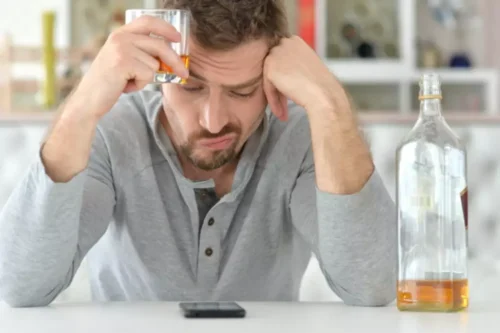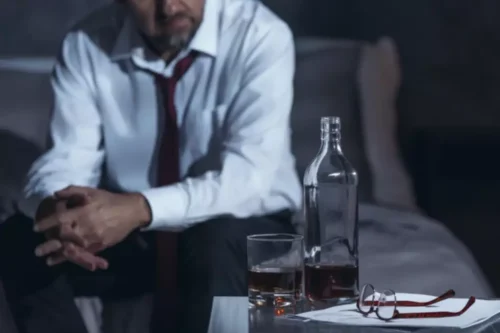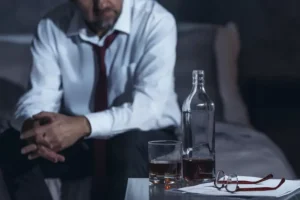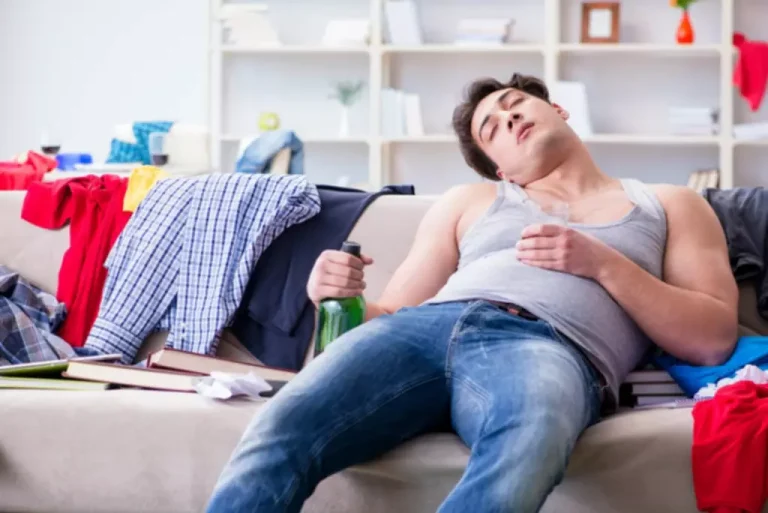Alcohol and your health: Risks, benefits, and controversies

If you take medication for anxiety, or you take anti-inflammatory drugs or narcotics, drinking can cause problems with anxiety. You can become agitated and jittery because your body is busy processing the alcohol, which neutralizes the effect of these medications. Few people may realize it, but you can actually be allergic or intolerant to alcohol. Anywhere from 7% to 10% of the general population has such an allergy, though it affects about 35% of those with Asian backgrounds. Signs include skin flushes and a feeling of being either wound up or very sleepy. Do you ever notice yourself feeling a little out of sorts the day after you drink?
- “Giving your body six months of water absorption will improve your digestion and constipation,” says Dr. Mosquera.
- “Throughout the day, as the acetaldehyde is excreted, your body is recovering from having been poisoned,” Holt says.
How To Stop Anxiety After Drinking Alcohol

Instead of focusing on everything you can’t do while you’re taking care of yourself, just focus on the present moment and what needs to happen next. If you get hijacked by overwhelm, take a deep breath and put your energy toward the next right action. A recent study suggests that being shy might be a subclinical indicator of social anxiety. And being shy makes it more likely that you’ll get relief from anxiety when drinking, but also more likely you’ll experience more extreme anxiety after the alcohol wears off. Of course, getting some exercise is a great way to take care of your physical health.
- Get involved in distracting tasks like watching a movie, exercising, reading, journaling, or something else to get your mind off things.
- Try relaxation techniques like deep breathing, meditation, yoga, or tai chi.
- This feeling, known as hangover anxiety or «hangxiety», affects around 22 percent of social drinkers.
- Alcohol interferes with your brain’s neurotransmitters in a pleasant way when your BAC is rising.
- Over time, excessive drinking can cause severe physical and emotional consequences, including but not limited to alcohol abuse.
- We know that anxiety and inflammation are linked, so sipping on a warm cup of ginger tea may help improve your mood.
- This is especially true for party drugs, such as ecstasy or MDMA, that give you a temporary high but can lead to anxiety as they wear off and you are coming down.
Can Alcohol Use Make Anxiety Worse?
- Recovery from hangxiety isn’t just about treating the symptoms, it’s about creating a more balanced approach to drinking that aligns with your mental and physical wellbeing.
- To increase dopamine levels after drinking, focus on activities and foods that naturally boost this neurotransmitter.
- Finally, the people in your life who care about you may worry about how much you drink or what happens when you do.
- If you’re feeling nervous about being in a social setting, you may pour yourself a glass of wine to self-regulate any stress.
Alcohol’s boost in glutamate may contribute to anxiety well into the following day. Some studies on mice show that alcohol-related anxiety can last Substance abuse anywhere from 4 to 14 hours. If you suspect that you have an alcohol use problem, effective treatments are available.
Bipolar Disorder and Relationships: Overcoming Challenges with Compassion and Care
While it might be tempting to turn to alcohol to manage feelings of anxiety, it can be a slippery slope that worsens anxiety problems and increases your risk of developing an alcohol use disorder. Instead of alcohol, consider talking to a mental health professional about effective anxiety management options, which may include psychotherapy and medication. Quitting drinking on its own often leads to clinical improvement of co-occurring mental health disorders, but treatment for psychiatric symptoms alone generally is not enough to reduce alcohol consumption or AUD symptoms. Among people with co-occurring AUD and psychiatric disorders, AUD remains undertreated, leading to poorer control of psychiatric symptoms and worse outcomes. Similar results have been generated from some, but not all, studies of alcoholism in relatives of patients with severe anxiety disorders.

Can alcohol cause anxiety and panic attacks?
Readers interested in more detailed descriptions of the methods of particular studies, however, are referred to specific citations within those reviews. People with anxiety disorders may use alcohol as a coping mechanism, which could lead to drinking anxiety alcohol use disorder (AUD). Similarly, those with AUD may have a higher risk of developing anxiety disorders. As we learn more about the brain-gut connection every day, note that some drinks like kombucha and kefir pack probiotics that may be helpful for improving mood.
In fact, the experience is so common it even has a nickname—hangxiety. For those with a long-term AUD, excessive drinking can cause serious and even irreversible harm to the body and mind, as well as relationships and livelihood. Some people with chronic AUD develop a neurological disorder called Wernicke-Korsakoff syndrome, also sometimes referred to as a “wet brain,” which leads to brain damage, chronic psychosis, and loss of motor function. It is also important to check whether you feel able to take a break from alcohol and look out for the warning signs of a drinking problem. Self-medicating your panic attacks with drink can leave you psychologically dependent on alcohol because the short-term sedative effects can be addictive.

Predictably, the alcoholic beverage industry opposes more restrictive guidelines. It’s worth noting that current guidelines advise against drinking alcohol as a way to improve health. And not so long ago there was general consensus that drinking in moderation also came with health advantages, including a reduced risk of cardiovascular disease and diabetes.
